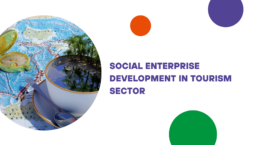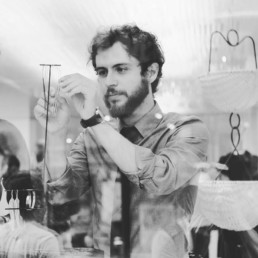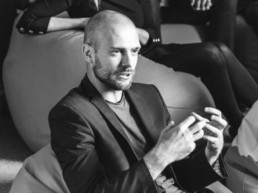Social Entrepreneurs for Tourism

The field of social entrepreneurship is on the rise, drawing more supporters and venturing into diverse sectors. To keep the trend up, addressing challenges posed by COVID-19 with innovative solutions had become essential. One such strategy involves social enterprises not only sticking to their core business but also reshaping and adapting their offerings to cater to the tourism industry. This dual-purpose approach aims to not only generate additional income but also ensure the sustainability of these enterprises in the face of evolving circumstances.
The Latvian Social Entrepreneurship Association, in cooperation with the Georgian Social Enterprise Alliance (SEA) and the Regional Sustainable Development Institute (RSDI) of Georgia, had been exploring opportunities to promote the possibility of social entrepreneurs engaging in the tourism industry under the project “Social Entrepreneurs for Tourism” funded by the Ministry of Foreign Affairs of the Republic of Latvia.
Social entrepreneurs face several challenges when stepping into the tourism sector. The lack of information on current tourism trends, along with the need for innovative service development and entrepreneurial skills, makes it difficult for them to integrate successfully. The Covid-19 crisis hit the tourism industry hard, prompting shifts in habits and industry dynamics. Travelers now lean towards exploring local destinations, engaging in traditional events, and supporting small businesses. To ensure a sustainable and engaging tourism experience that positively impacts communities, successful collaboration is crucial. This collaboration should involve various stakeholders, including public and private organizations, local producers, social entrepreneurs, cultural sectors, local authorities, and tourism management organizations. By fostering cooperation among these parties, we can, and indeed did, craft a tourism offer that aligns with evolving preferences and creates a positive social footprint in the visited communities.

The project successfully unfolded from July 1, 2022, to November 15, 2022, with the overarching goal of nurturing the social business ecosystem and fostering a positive social impact in Georgia. During its implementation, small and medium-sized social enterprises were empowered to adapt their services to thrive in the tourism industry. The key achievements include:
- Identification of social enterprises adept at providing services in the tourism sector.
- Enhancement of capabilities, knowledge, and skills for social enterprises, NGOs, and civil society organizations, enabling them to deliver high-quality tourism services and collaborate effectively with tourism agencies.
- Support provided to tourism sector representatives and fellow social entrepreneurs in overcoming the consequences of the COVID-19 pandemic through innovative approaches.
- Creation of opportunities for cooperation, meetings, and networking among social entrepreneurs, promoting the exchange of experiences and knowledge.
Within the framework of the project, social entrepreneurs capable of providing services in the tourism industry were identified. They became acquainted with existing and potential social business initiatives in the field of tourism, including those already offering various activities and those with the potential to be involved in this field. The capacity of social entrepreneurs was strengthened, with efforts directed towards improving their knowledge and skills to develop activities in the tourism sector. Experience exchange and individual mentoring were provided to aid in the development and enhancement of products/services.

During the project, we developed and tested tourist routes in different regions of Georgia, which underwent multiple improvements and refinements. These routes involve the social enterprises that we have been working with along the way and offer an experience that brings a positive impact. To explore more about routes alongside detailed offers from social enterprises check out our article or download the Touristic Catalog of Social Enterprises.
The project extended to the exploration of the relationship between social tourism and social entrepreneurship in Latvia. While the concept of social tourism has been widely discussed since 2014, its actual presence still has significant room for growth. In Latvia, social enterprises have embraced the concept in their business practices, which is not surprising given the close alignment of core values between social tourism and social entrepreneurship. If you’re interested in further details, the article on Social Tourism Development in Latvia provides insights into the recovery efforts amidst the COVID-19 crisis. This article sheds light on how these intertwined concepts have played a role in navigating the challenges posed by the pandemic and fostering resilience in the community.
The entire journey facilitated the sharing of experiences, networking, and learning from successful examples. The project produced tangible resources, including a touristic catalog, and laid the groundwork for participant enterprises to sustain their development in the social tourism sector. As a result, these efforts have collectively contributed to the growth and advancement of social entrepreneurship in Georgia’s tourism industry.

This piece was written in the framework of the project “Social Entrepreneurs for Tourism”, funded by the Ministry of Foreign Affairs of the Republic of Latvia.











